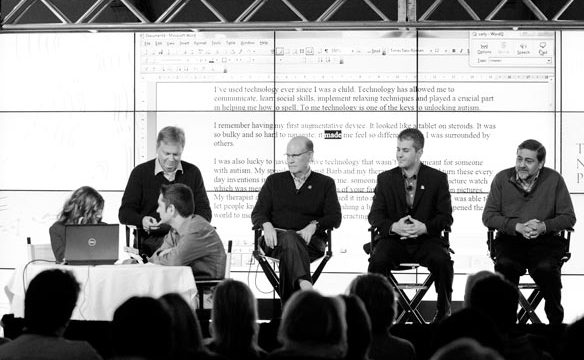Winning the Culture War on Two Fronts

The big news this week, as well it should be, was a new survey from Pew showing that America’s religious “nones” continue their demographic ascent:
The number of Americans who do not identify with any religion continues to grow at a rapid pace. One-fifth of the U.S. public – and a third of adults under 30 – are religiously unaffiliated today, the highest percentages ever in Pew Research Center polling. [That works out to 46 million people! —A.L.]
In the last five years alone, the unaffiliated have increased from just over 15% to just under 20% of all U.S. adults. Their ranks now include more than 13 million self-described atheists and agnostics (nearly 6% of the U.S. public), as well as nearly 33 million people who say they have no particular religious affiliation (14%).
This is dramatic confirmation of the WIN-Gallup survey I wrote about in August, which found, even to my surprise, that the number of self-identified atheists in America has quintupled in just the last few years. It’s important to clarify that not all the nones are atheists – some are believers who disdain association with organized religion – but regardless, atheists are an influential subset of that larger group. And the vast majority (88%) of the nones say that they’re not looking for a religion that would suit them better, disproving the inevitable canard that we’re all just seekers who’ll eventually return to the one true church.
The survey also found that Protestants, for the first time ever in America’s history, are a minority of the population. This is something that demographers saw coming as far back as 2004.
Needless to say, this is all very bad news for the party of theocracy. In the voting booth, American nones are reliably progressive, breaking heavily for Democratic candidates; and as Michelle Goldberg points out, there are now as many religious nones in America as there are white evangelicals. The continued erosion of the Republican party’s base, coupled with the growth of secular voters who are turned off by the intrusion of religion into politics, spells a bright future for reason in America.
And on that topic, I wanted to mention this article about James Meredith, a civil-rights activist and Air Force veteran who was the first black man to attend the formerly-segregated University of Mississippi in the 1950s. When he first set foot on campus, it triggered a riot:
Mississippi’s segregationist governor in 1962, Ross Barnett declared that no school would be integrated on his watch. He denounced the federal government as “evil and illegal forces of tyranny” for ordering Ole Miss to enroll Meredith…
In the face of Mississippi’s defiance, federal authorities deployed more than 3,000 soldiers and more than 500 law enforcement officers to Oxford. An angry mob of students and outsiders yelled and hurled bricks. Tear gas canisters exploded amid the oaks and magnolias. Two white men were killed. More than 200 people were injured…
Reading this, it’s hard not to draw parallels with today’s flare-ups over free speech, and the ivory-tower pundits who insist that we should censor ourselves in whatever ways we have to to keep the violent extremists from getting riled up. No doubt, Meredith too had critics who denounced him for his provocative actions and blamed him for the violence because he insisted on rocking the boat.
But Meredith has the definitive answer to these cowering appeasers: he intended to be provocative, he intended to trespass on the bigots’ turf and make them furious, because forcing the issue was and is the only way to bring about real change:
“I chose as my target the University of Mississippi, which in 1960 was the holiest temple of white supremacy in America, next to the U.S. Capitol and the White House, both of which were under the control of segregationists and their collaborators,” Meredith writes.
“I reasoned that if I could enter the University of Mississippi as its first known black student, I would fracture the system of state-enforced white supremacy in Mississippi. It would drive a stake into the heart of the beast.”
…Meredith writes that although people consider him a “civil rights hero,” that’s not how he sees himself: “I’ve always found the rhetoric of mainstream civil rights leaders and organizations to be far too timid, accommodationist and gradualist. It always seemed to me that they behaved like meek and gentle supplicants begging the oppressor for a few crumbs of justice, for a few molecules of citizenship rights.”
We ought to have this same bold, fearless mindset when confronting the critics who fret and lament that atheists are unnecessarily provocative, that we’re too divisive or too strident, that our criticism is driving away people who’d otherwise be our allies. And as you may have noticed, this same dynamic is also playing out within the atheist movement, as advocates of Atheism Plus are invariably accused of the same things that fundamentalists accuse atheists in general of.
In both cases, our answer should be the same: We consider that our duty is to the truth first and foremost, and we believe that people will respond to honesty and conviction. Therefore, we intend to make our case vigorously and forthrightly, and to assert our rights fearlessly, no matter what fretting or lamentation it provokes. As Jezebel’s Lindy West says in a brilliant essay, we shouldn’t be seeking a truce in the culture war: we should be seeking to win it. And whether through demographics or through superior argument, all the evidence shows that we’re accomplishing exactly that.
Image credit: Shutterstock
Daylight Atheism: The Book is now available! Click here for reviews and ordering information.





